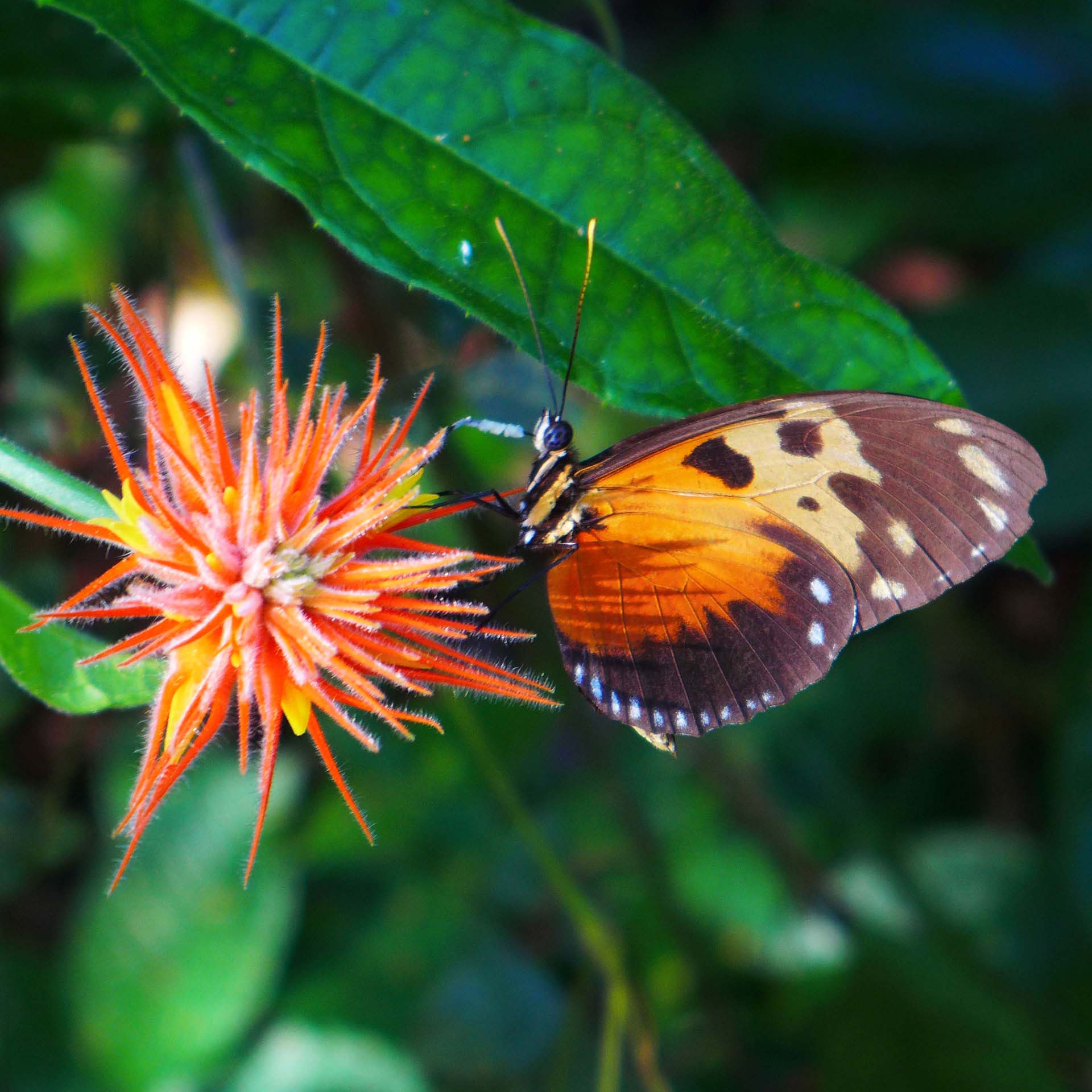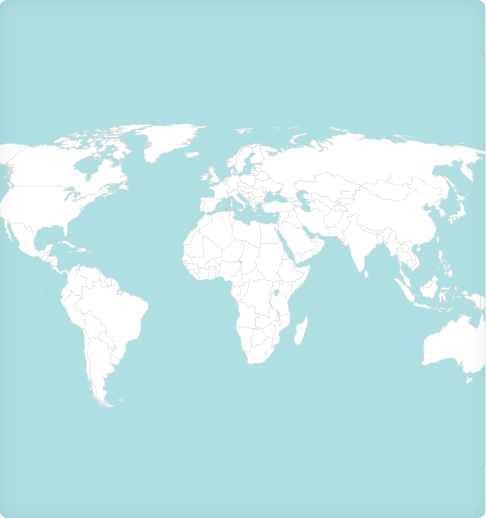Credits
16
Prerequisites
None
Courses taught in
English
Dates
early September – mid-December
Program Countries
Panama
Critical Global Issue of Study
Climate & Environment

Study how climate change impacts tropical ecosystems and societies. Visit highland cloud forests and coral reefs in Panama, which boasts some of the most biodiverse ecosystems in the world.
16
None
English
early September – mid-December
Panama
Climate & Environment
SIT First Year: a new experience from SIT, the fully accredited leader in academic and social justice-driven study abroad.
Panama has some of the world’s most biodiverse and complex ecosystems, from highland cloud forests to Caribbean coral reefs. In this unique setting, you’ll learn how to observe forest dynamics, check water and soil quality, and measure biodiversity. In Panama City, a regional base for international NGOs and the United Nations, you’ll explore conservation topics such as sustainable agriculture, indigenous resource use, and ecotourism. On excursion, you will experience the cloud forest highlands in La Amistad UNESCO Biosphere Reserve, the only one of its kind in Central America and a study site for tropical forest dynamics. In the Guna Yala indigenous autonomous territory, you will snorkel among coral reefs and learn about marine ecosystems and conservation.
None.


Experience the cloud forest highlands in La Amistad UNESCO Biosphere Reserve, the only one of its kind in Central America. La Amistad is considered one of the most diverse biospheres in the world due to its location, altitude gradients, and unique ecosystems. You will study tropical forest dynamics in the park and learn from conservation NGOs and local conservationists.
In 1925, the Guna Yala Comarca became the first indigenous region granted autonomy in Latin America. Because of its remote location and historically low demand on marine resources, Guna Yala is a largely intact, diverse marine ecosystem. Explore mangroves, seagrass beds, and coral reefs. You will spend most of your time snorkeling and conducting coursework in the water.
Please note that SIT will make every effort to maintain its programs as described. To respond to emergent situations, however, SIT may have to change or cancel programs.
The following syllabi are representative of this program. Because courses develop and change over time to take advantage of dynamic learning opportunities, actual course content will vary from term to term.
The syllabi can be useful for students, faculty, and study abroad offices in assessing credit transfer. Read more about credit transfer.
This course prepares students to transition from high school to college, as well as between living and learning at home and abroad. Course content and activities, including basic language instruction, orient students to the intellectual, social, and intercultural atmosphere of their learning community. Through experiential learning activities and personal reflection, students will develop the transferable knowledge, skills, and habits that lead to success, well-being, and resilience in the program, in college, and beyond. Course concepts include cultural immersion, anti-oppression and anti-bias training, mindfulness for well-being, “campus” resources, and academic success strategies.
The Community Engagement and Reciprocity course challenges students to develop appreciation of multiple perspectives and an understanding of reciprocal engagement with local communities. Students are asked to employ “service listening” (as opposed to “service learning”) as they learn what reciprocal engagement means for their local host communities. Volunteer experiences with SIT community partners help students learn about the practical and ethical concerns that shape engagement and reciprocity in community action. Students will develop knowledge, skills, and perspectives that transfer to their academic trajectories, while experiencing mutually beneficial civic and community partnerships.
The Career Pathways and Explorations course guides students in an exploration of their interests, field experiences, and personal goals to craft pathways toward their academic and career goals. Students are guided through reflective, exploratory, experiential, and information-gathering exercises that help them articulate long-term goals. Students are offered mentorship as they gain tools to help achieve those goals. By the end of the semester, each student develops a pathway map: a plan that identifies goals and concrete steps through college and toward a career. Concepts include personal identity, values, and career choices.
SIT programs are developed around a framework of the most critical global issues—challenges that transcend borders to touch every aspect of life. The First Year Seminar uses the Critical Global Issues framework to explore topics through local, regionally comparative, and global perspectives. It aims to foster a sense of ethics and an inclusive, diverse approach in academics. The SIT First Year Seminar promotes close interaction between faculty and students in a small setting to increase intellectual engagement and help students develop skills for academic success.
This course leverages students’ unique opportunities abroad to focus on ethical engagement and introduce them to research, research design, and field-based methods for exploration. We will explore community-based research strategies, an approach that prioritizes local knowledge to mitigate the socio-cultural, economic, and structural barriers that prevent success in effecting social change.
This survey course introduces students to the interdisciplinary field of environmental studies, which encompasses almost every aspect of human interactions with the natural environment. From a global perspective, we’ll focus on the existential crises facing human civilization, from climate change and biodiversity loss to the collapse of major world fisheries. We will examine how these crises are highly interrelated and have common root causes. Finally, we will evaluate different approaches to solving these crises, ask why we have not solved them already, and present hope that real solutions are available. We will draw from the physical and biological sciences, the social sciences, and the humanities. It is our aim that students will exit this course as ecologically literate citizens with a grasp of the true nature and urgency of the challenges we face and the ability to use informed critical thinking to help solve these problems and make decisions in their work, community, marketplace and the voting booth.
This program consists of a semester-long, two-unit group internship with a community or research organization, business, cultural institution, or international NGO. Small groups of students are placed together and given a project to tackle as a team under the mentorship of the organization (for instance, putting together a study or marketing campaign, developing a social media strategy, etc.). The group internship concept allows the first-year student to pursue career interests, but in the less complex environment of an individual project. The organization may also ask individual students to do job-shadowing or provide other duties during the internship. This group internship aims to help students sample a prospective career, gain experience for their resumes, and get valuable learning experience in a professional environment. It enhances critical thinking, time management, and intercultural communication skills in an international professional environment. An internship is part of the student’s experiential learning on the program and is not a paid job.
Students may take a language course as an elective. Students will be placed in the appropriate level of a local language (taught in person), or any other language offered by SIT via our online language programming.
This option will be determined in collaboration with students’ home schools.



SIT Study Abroad is committed to ensuring that international education is within reach for all students. We believe in the transformative power of immersive, intercultural experiences and are dedicated to supporting students in their educational journey.
Learn More
A critical step in preparing for your study abroad program is planning how you will maintain your health and wellbeing. Please review the following information carefully and contact [email protected] with any questions or concerns.
View Information